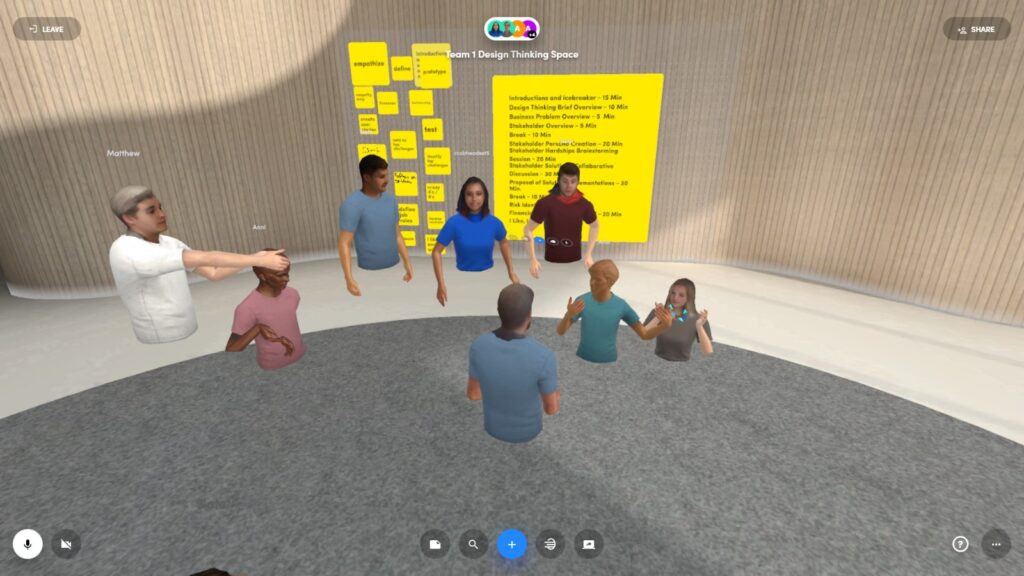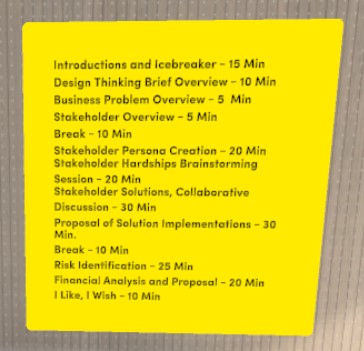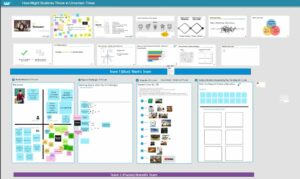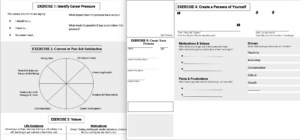In the last week of April, the German and American students met in groups of five to seven people in a virtual environment in a spatial room using the VR oculus headsets they were provided with. All of the group participants had to think of two truths and one lie about themselves before the spatial session and write them on post-its when in the room. Everyone had to take guesses at what the lie could be, which was a fun way to learn more about each other. After that we discussed the exercise we had got about planning an agenda for a Design Thinking workshop and we came up with what we wanted to include and a rough schedule.
We, that is group 2 members, think that the virtual reality group work was overall a great new experience. It feels a lot more like actually meeting people compared to a regular zoom meeting where you can only see the faces of your group members on your screen. VR is also setting itself apart from regular online meetings by providing a space where one can do much more than sharing your screen, you can open multiple browsers at the same time and smaller working groups are able to form more natural. What makes it a little harder to work in VR is that typing with the controllers is much slower than typing on a keyboard and text alteration is even harder than just regular typing.
The communication within our team was very good because of the mix between talking, brainstorming, and searching in a browser tab to fill the white bord. Still the virtual collaboration does not come close to the efficiency of a real-world meeting, in our case it was mostly because VR is still new to us, and we are not yet 100% familiar with the controls and best practises in VR, making all progress a bit slower than a normal meeting would have been.
We had some new ideas and talked about the methods that were used in the SAP workshop we had a week prior and tried to combine all of them into a system that fit the case we were given; we also came up with a few combinations of methods.
The first difficulty was to find a date where every group member had time, to make that even harder there is a six-hour time difference between Georgia and Germany. Next up were some technical difficulties with the oculus headsets, some of the microphones would not turn on or spatial had some problems because the oculus was not on the latest software version. Other than that, we did not really experience any difficulties or were able to solve them right away with the help of other group members.





